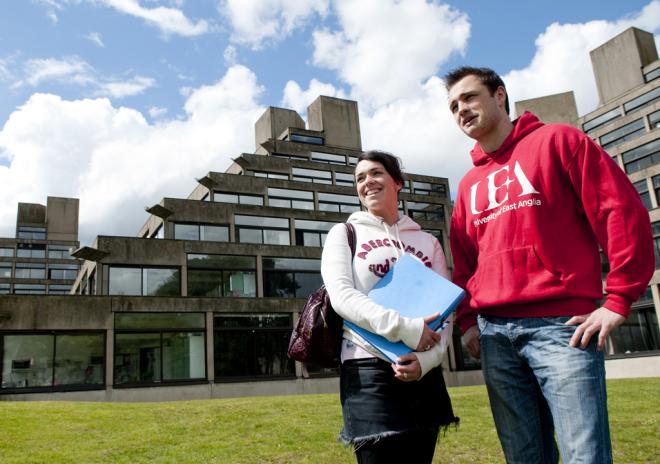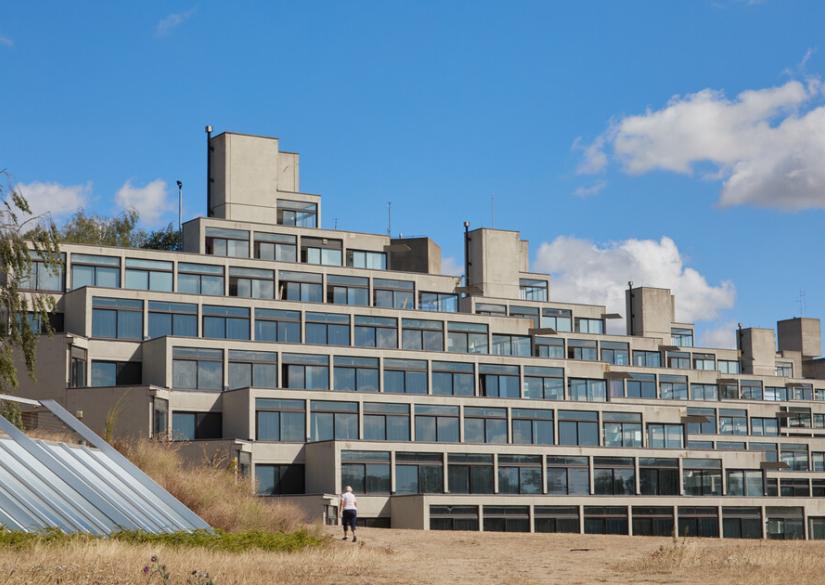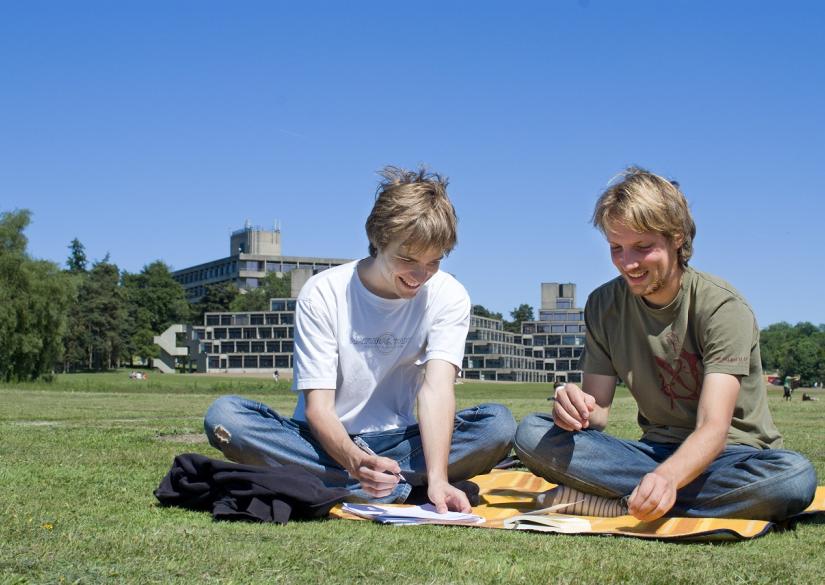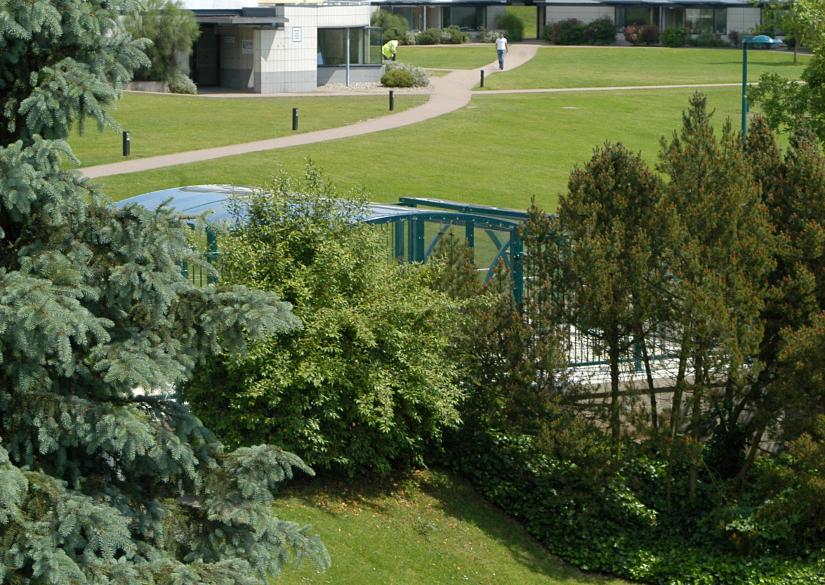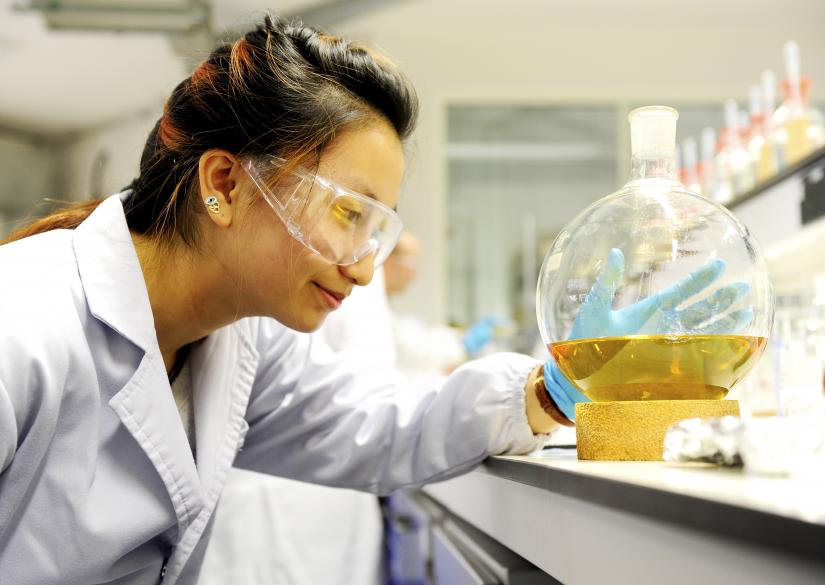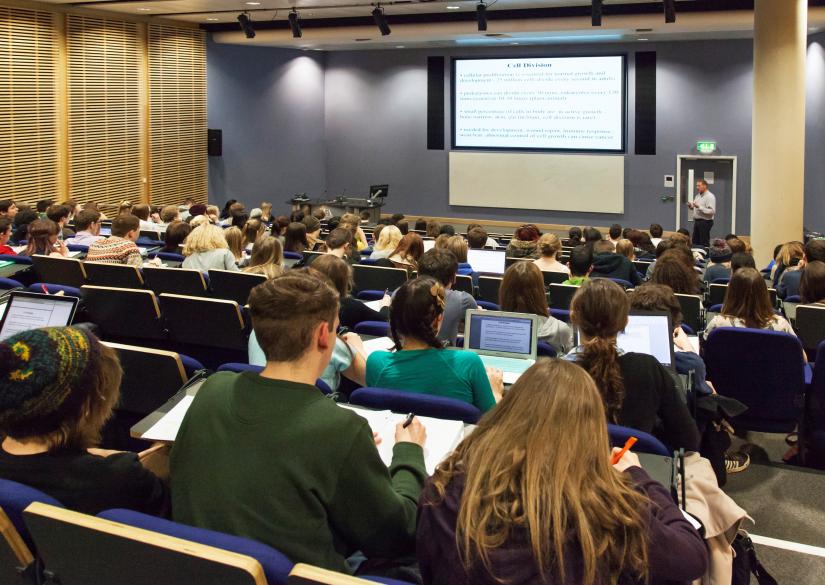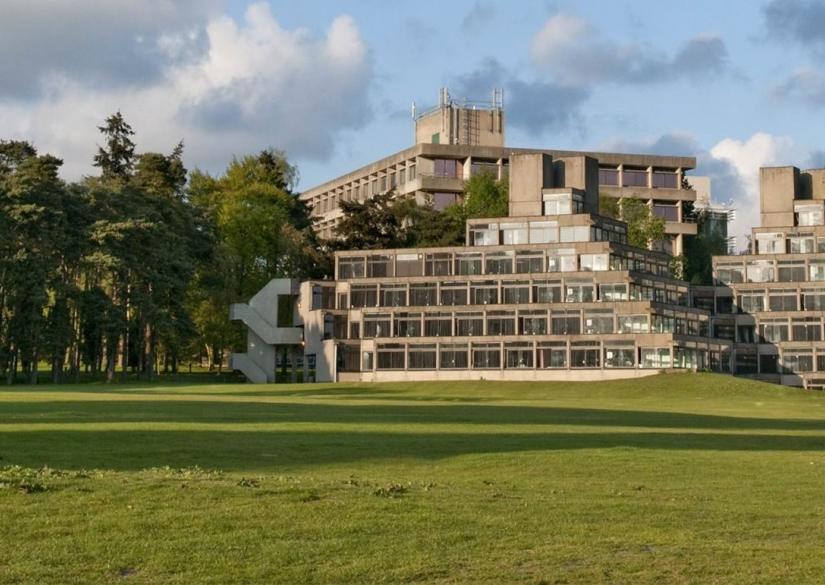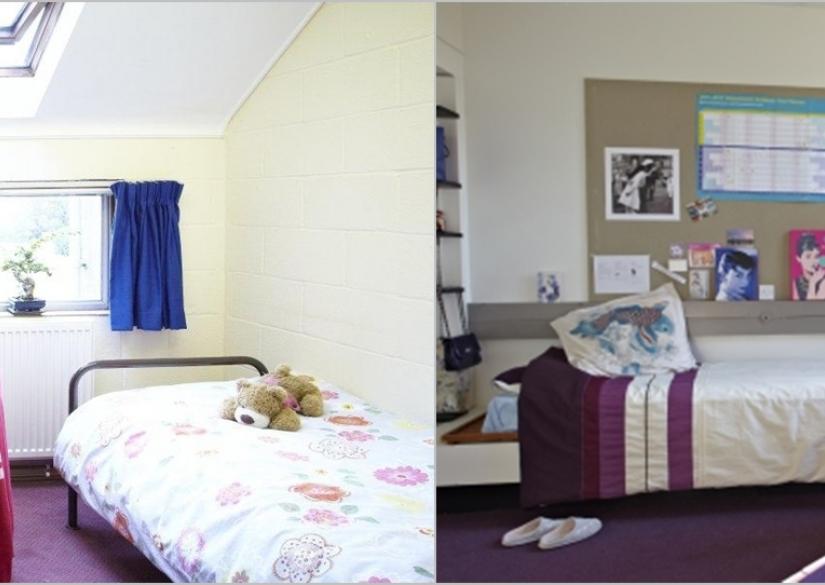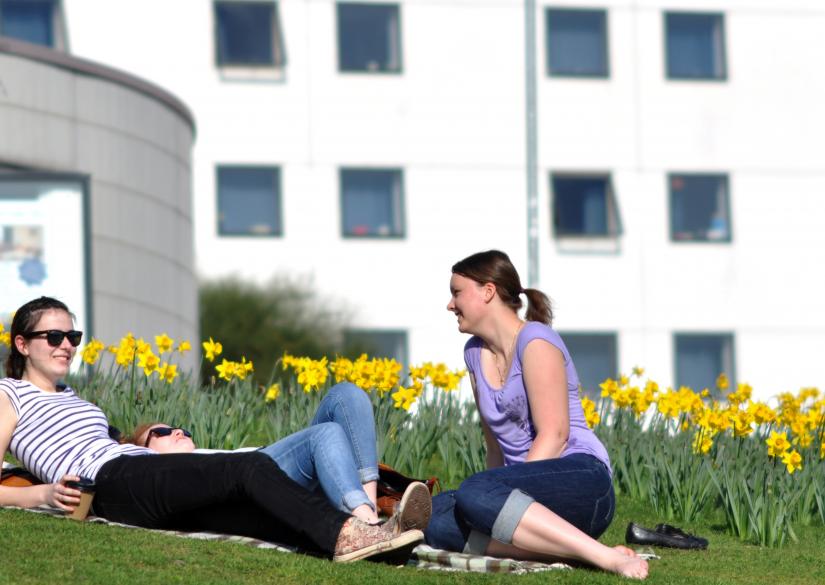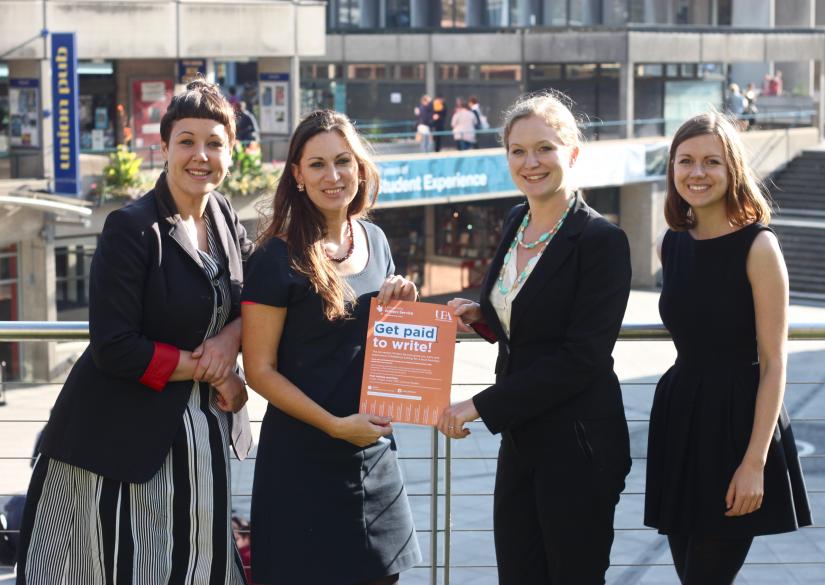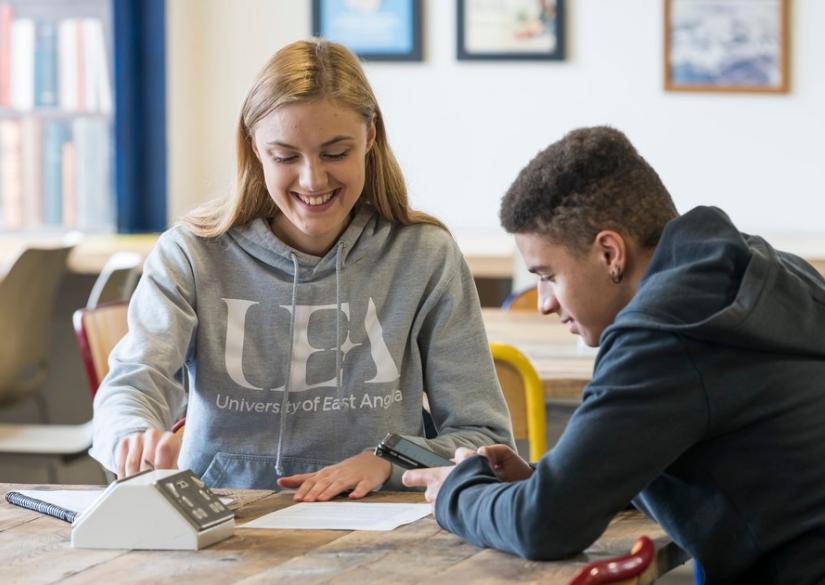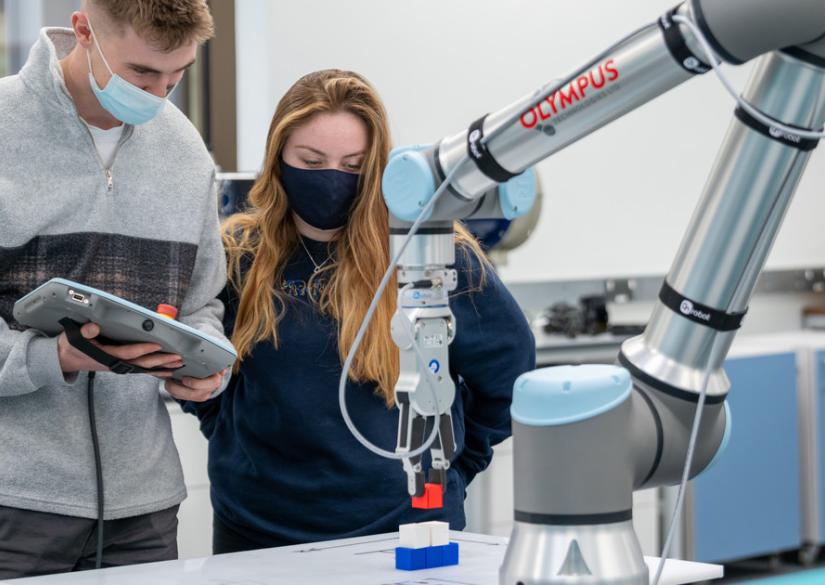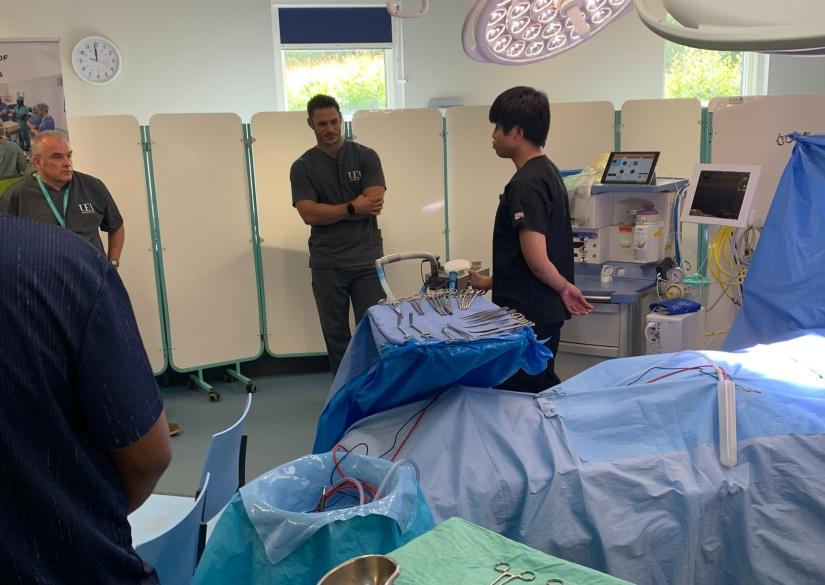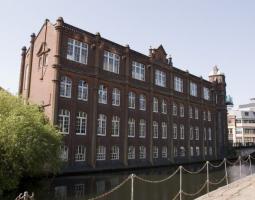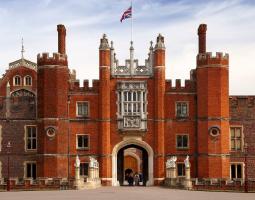UEA: University of East Anglia
In the process of preparing the material, we referenced the following sources: Wikipedia, THE, ArchitectsJournal, Dailymail, The Complete University Guide
Programs and prices, tuition fees in UEA: University of East Anglia
Short information about standard three-year course of higher education (profile, narrow specialization is not provided).
Bachelor's programs include theoretical, practical education of specialists. The emphasis is on studying the profile disciplines of a general nature in accordance with the chosen direction. In the UEA, undergraduate programs are offered at the faculties of social sciences, art, science, economics, business, medicine, and the MBA school.
- Student age: 18+
- Start dates: September.
- Enrollment requirements: certificate + Foundation Year or A-Levels / IB certificate, IELTS 6.0 or TOEFL from 79.
- The result of studying: a bachelor's degree, a high level of professional knowledge in the chosen field, career prospects in Britain, Europe.
Short information about postgraduate education, allowing to deepen the fundamental knowledge within the chosen specialization.
Practically oriented, highly specialized programs are aimed at studying specialists in the research, pedagogical profile. Traditionally for British universities, the master's degree in the UEA includes a theoretical, practical course and internship.
- Student age: 21+
- Start dates: September.
- Requirements for admission: a diploma of higher education (an average score of at least 4.0), a certificate of Pre-Masters (preferably), an IELTS of 6.5 (TOEFL of 92).
- The result of the studying: master's degree, qualitative academic education, experience in participating in research projects, prospects for employment abroad, the possibility of further academic development on PhD programs.
Description of UEA: University of East Anglia
UEA: University of East Anglia was founded in 1963, is one of the most advanced research centers in the country. The University of East Anglia located in Norwich unites 15,000 capable students who want to discover their potential in the chosen field of scientific knowledge. 16% are foreign students. Representatives of more than a 100 countries get fundamental knowledge in the intercultural academic environment.
More than 300 educational programs are offered at 4 UEA faculties. Academic specialization of the prestigious British university lies in the field of social sciences (business, MBA, law, education, sociology, psychology, international development, physical education), humanities and arts (translations and linguistics, international relations, politics, media and television, American studies, literature and copywriting, history, drama, philosophy, museology, world art). Also at the university you can get a medical specialty in the UK. Fields of nergy development, pharmaceutics, ecology, chemistry, biology, mathematics, computer science are also quite popular.

What are the currently popular courses at UK universities?
UK universities are known for their diverse subject offerings. Business, medicine, and engineering traditionally see high demand, with growing interest in computer science.
Educational process
At UEA, students can earn bachelor's, master's, and doctoral degrees, and UEA's INTO center (located on campus) offers academic preparation courses and English language programs designed specifically for international students:
- International Foundation. A preparatory program that allows you to improve not only English, but also improve your academic knowledge in order to guarantee admission to the 1st year of the bachelor's program. This program will also serve as an additional year of study, as in the UK complete secondary education takes 12 years (unlike in Russia).
- International Year One. It will help you improve your academic and language skills in order to enroll in a bachelor's program (sometimes immediately in the second year).
- The International Graduate Diploma is an ideal preparation for students preparing for admission to a master's program.
- The Newton A-Level Programme is a programme for successful applicants that helps them achieve the highest A-levels for admission to the university of their choice.
- Various English courses.
Faculties and colleges
UEA has 4 main faculties that take an interdisciplinary and innovative approach to teaching and research. They are home to academic schools, graduate schools, and research groups.
Arts and Humanities:
- School of Arts, Media, and American Studies,
- Faculty of History,
- Interdisciplinary Institute for the Humanities,
- Humanities
- School of Literature, Drama and Creative Writing.,
- School of Politics, Philosophy, Language Studies and Communication.
Medicine and Health Sciences:
- School of Health Sciences,
- Norwich Medical School.
Science:
- School of Biological Sciences,
- Faculty of Chemistry,
- School of Computer Science,
- Faculty of Engineering,
- School of Environmental Sciences,
- Faculty of Mathematics,
- Science
- Faculty of Pharmacy,
- Physics.
Social Sciences:
- Norwich Business School,
- School of Economics,
- School of Continuing Education and Training,
- School of Global Development,
- Faculty of Law,
- School of Psychology,
- School of Social Work,
- Sociology.
Scientific achievements
UEA research has a real impact on the world, with 91% of research rated 'world-leading' or 'internationally excellent' by the Research Excellence Framework (REF2021). The university is also in the top 20 research in the UK for quality.
Investigations UEA is not conducted in isolation, but in collaboration with local, national and international academic and industrial partners. Strategic research topics of the university:
- ClimateUEA (climate challenges),
- CreativeUEA (Creative Issues),
- HealthUEA.
They bring together scientists from different disciplines to explore new ideas, develop new research projects, and work on solutions to key problems.
Accommodation, meals, prices
More than 4300 rooms are available on the UEA campus, which provides convenient accommodation in picturesque surroundings, a number of advantages:
- A license that corresponds to the student's course (usually 40 weeks for undergraduate students and 50 weeks for graduate students),
- Internet, gas and electricity are included in the price,
- No transportation costs to get to and from campus,
- Security and maintenance,
- Academic learning facilities and additional services are nearby.
Accommodation at UEA is organized on campus itself and in several residences located nearby. Accommodation is different everywhere, from single bedrooms to 14 students per largest room, but bathrooms, shared kitchens, living rooms and laundry facilities are available throughout.
All UEA residences are self-catering and have a variety of dining options on campus. All students can use the Campus Kitchen food and beverage app.
Couples and students with a child/children under 10 years old can consider the option of family accommodation: on campus and private rented accommodation in Norwich.
- UEA Family Homes can accommodate up to two adults and either one child or two children under 10 years of age. Non-student spouses/partners are allowed to reside in these properties, provided that the main tenant is a full-time UEA student.
- The family homes consist of two bedrooms (one double and one twin/bunk beds), an open plan kitchen/living room and a bathroom with shower. The houses are furnished and the price includes water, gas, electricity and internet access.
Students can also live with host families, who are checked for safety and approved by the university. This option is especially popular with foreign students, allowing you to count on a different length of stay - up to a whole academic year. Rooms are available on a self-catering or catered basis.
Subjects and sports
Activities UEA: University of East Anglia
The university employs more than 200 societies and sports clubs. To attention of students creative master classes are offered. Opportunities for sports development are almost unlimited. The Sportspark hall has squares and equipment for various sports, from aerobics to rock climbing. Entertainment and cognitive programs in the university are:
- Discotheques;
- Thematic parties;
- Various competitions;
- Field trips to the region and the country.
Daily routine
Schedule is determined by the specifics of the curriculum. Obligatory for the room are lessons of theory and practice. Intensity of self-preparation and elective classes is chosen by students independently.
Advantages
- UEA is a prestigious British university from the TOP-20 educational institutions of the United Kingdom, one of the TOP-150 best educational institutions in the world;
- The university provides its students with everything necessary for academic development. UEA is distinguished by its modern material and technical base, developed internal infrastructure;
- In the university students can get an education that meets international standards. A sought-after specialty and a diploma that is quoted throughout the world will open up wide career prospects;
- At the university, foreign students have an opportunity to reduce tuition fees through scholarships. At undergraduate programs a discount can be from £ 1000 - £ 3000, at the magistracy up to 50% of the cost of the educational program;
- Academic buildings and part of the housing stock are adapted for students with disabilities.
Facilities and equipment at UEA: University of East Anglia
The UEA infrastructure includes:
- Modern auditoriums;
- Laboratories;
- Lecture rooms;
- Computer classes;
- A library with more than 1.000.000 printed funds;
- Sports facilities;
- Residences;
- Recreation areas;
- Cafes;
- Restaurants;
- Shops.
Wi-Fi is available on the whole territory of the campus.
Admission dates and extra charges
Extras:
- Deposit for a course/programme 2000 GBP
- Study materials 110 GBP
- One way transfer - Gatwick 240 GBP
- One way transfer - Heathrow 240 GBP
Enrolment process
The first thing to do is to choose a faculty of study, followed by a series of actions:
- Completing the UCAS application, after which it will go to UEA, where the admissions committee will check it. The university notifies all its applicants by e-mail about the receipt of the application.
- Consideration of the application. Before making a decision, the Admissions Committee may:
- Invite the candidate for an interview (applicable only to some courses),
- Invite to audition (only applicable to some courses),
- Ask the applicant to submit a portfolio or written work (applicable only to some courses),
- Ask for more information,
- Postpone the application for a while until she knows more about other applicants who have applied for the same course.
The commission will send all the necessary information by e-mail. You can follow the progress of the application on UCAS.
- Decide. The university can provide one of the following options:
- Conditional invitation. Some conditions must be met to get a place,
- Unconditional invitation – you are already waiting for the course,
- Offer to change course (where there are vacancies),
- Refusal.
- Apply for loans, scholarships, and scholarship payments.
- Attend Admissions Day: This is an exclusive event for enrolled students to meet faculty and current students.
- Fill out a housing preference form before a certain deadline.
Enrolment statistics
Every year, more than 1000 students from other countries enter UEA.
Perspectives
UEA was ranked first for employability prospects in the 2022 Student Audience Survey. Graduates leave the university with qualities that go far beyond the academic content of their courses – resilience, confidence and flexibility in their work, they are able to articulate and defend their own skills and abilities.
81% of UEA graduates continue to work and/or study within 15 months of completing their course, 90% of graduates find their current job meaningful
Entry requirements, how to apply, what is required to enrol
For each individual course, there are specific entry requirements. The UEA Academic Calendar publishes the General Admission Requirements for Undergraduate Programmes each year: applicants must meet both the minimum general entry requirements and the entry requirements for specific courses.
An applicant may be asked to attend an interview, audition, or submit a work sample. In certain cases, an applicant who does not meet certain elements of the university's general admission requirements may be granted admission.
The university may request additional information in connection with the application, either directly from the applicant or from the former academic institution (school). All applicants will be asked for the original certificate of their qualification (certificate, diploma).
All applicants who require a student visa must meet the minimum financial requirements and English language proficiency set by UK Visas and Immigration.
The main criterion is an assessment of the candidate's academic achievements to date and the potential to succeed in the course for which the application is submitted.
Bachelor's degree
- Secondary education equivalent to A-Level,
- IELTS 6.5-7.0,
- TOEFL iBT 90-100.
Master's degree
- higher education of at least a bachelor's degree in the field of intended study,
- IELTS 6.5-7.0,
- TOEFL iBT 90-100,
- Motivation letter,
- 2 reviews/recommendations.
Scholarships UEA: University of East Anglia
At UEA, students are offered a number of scholarships:
- Musical
- Sports
- international scholarships and EU scholarships.
Financial aid is available to both undergraduate and graduate students. A number of scholarships cover the full cost of tuition and accommodation, while others cover a certain percentage of expenses or provide special services (such as sports).
The conditions for different scholarships vary, but in most cases, it is important to demonstrate outstanding ability in a particular field. The university can also provide special grants to students with financial difficulties, for which it is necessary to provide a certificate of family income for the year.
Literature and references
Institution on the map
Residence permits, citizenship and other services
- Guardianship services during the studies
- Student supervision
Review about UEA: University of East Anglia
Recommendations on when to apply
| Language courses, schools and children's language camps | Primary and secondary education - private schools | Preparation programmes for entering universities - higher education | Higher education (after completing accredited programs A-level, IB, High School) - Bachelor, Master, MBA |
| - we recommend to apply 6-9 months before the start of the course (some camps and schools offer discounts for early booking or for lengthy study programs) - there are some very popular and high demand children's camps, where the applications need to be submitted 1 year in advance (in particular Switzerland , Great Britain , USA , Canada , Austria) | - we recommend to apply one year before the start of the training program, - some schools have a specific time frame (September-November - please specify an individual school) - some schools require tests in several stages (UKISET, internal tests of the school: English, mathematics, logics, subjects, interview, some require a personal visit) | - we recommend to apply one year before the start of the program, - for Foundation and Pathway programs, IELTS and TOEFL certificates are usually required, respectively | - recommended submission one year before the start of the program, - the deadline normally closes in January, for TOP HEIs and, as a rule, in March in other universities - for a bachelor, a Foundation or Pathway preparatory program a completed A-level, IB, High School + IELTS / TOEFL are required - for Masters you need a graduated higher education, in some cases you need a pre-Masters program - MBA requires completed higher education, work experience preferably at least 2-3 years, etc. |


